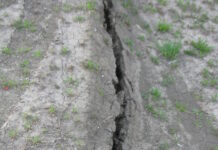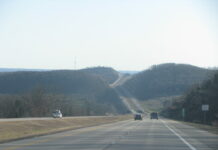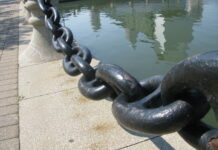Photo credit: DiasporaEngager (www.DiasporaEngager.com).
“The safety of the People,” exclaimed Roman statesman Cicero, “is the highest law.”
Accordingly, Israel must do whatever possible to protect its populations not only from Sunni Hamas in Gaza, but also from Shiite Hezbollah in the north. More precisely, though Israel is being forced to accelerate its conflict with Hezbollah, its ultimate adversary is Iran. In essence, safeguarding the country from a nuclearizing Iran must be Israel’s “highest law.”
What should be expected? If Israel’s indispensable counter-terrorism efforts bring it into another direct military confrontation with Iran, the result would likely be a protracted war. In any such unpredictable scenario, it is plausible that even a still pre-nuclear Iran could elicit a “limited” Israeli nuclear reprisal. Foreseeable escalation dangers would lie in Iranian use of radiation dispersal weapons or in Iranian conventional rocket attack on Israel’s Dimona nuclear reactor. In a conspicuously worst-case scenario, an already-nuclear North Korea would engage Israeli military forces on behalf of Iran. Ironically, in such a scenario, the already-nuclear ally (North Korea) would be acting as willing surrogate for not-yet-nuclear Iran.
There are multiple details. By definition, all pertinent scenarios would be unprecedented or sui generis. This means, at best, that related strategic predictions could be only superficially scientific. In logic and mathematics, true assessments of probability must always derive from the determinable frequency of relevant past events. But because there has never been a nuclear war (Hiroshima and Nagasaki don’t “count”), nothing science-based could be estimated about an Israel-Iran nuclear war.
Even if Iran were to remain pre-nuclear, Israel could sometime calculate that it should cross the nuclear threshold vis-à-vis Iran. This would be the case in those circumstances wherein non-introduction of Israeli nuclear weapons would allow Iran to gain the upper hand in crisis bargaining. In extremis, this means that Israel could decide to “go nuclear” (though presumably at very limited levels) in order to maintain “escalation dominance.”
These are weighty intellectual matters, not matters for “common sense” resolution. They could never be understood or acted upon correctly by politicians or pundits. Like the much larger United States, Israel needs to guard itself capably from decisions of the strategically illiterate and manifestly unqualified.
For Israel, a country smaller than America’s Lake Michigan, nuclear weapons and strategy remain essential to national survival. Israel’s traditional policy of “deliberate nuclear ambiguity” or the “bomb in the basement” goes back to early days of the state. During the 1950s, David Ben-Gurion, Israel’s first prime minister, recognized the need for a dramatic “equalizer” vis-à-vis larger and more populous regional enemies. Prudently, he sought to secure his tiny country’s problematic survival in a region of continuous and rancorous anarchy.
Now, facing a recalcitrant and soon-to-be nuclear Iran, Israel needs to update and refine its policy of “deliberate nuclear ambiguity.” The key objective of such urgently needed changes would be credible nuclear deterrence, a goal that will require a sudden or incremental shift to “selective nuclear disclosure.” Though counter-intuitive, Iran will need to be convinced, among other things, that Israel’s nuclear arms are not too destructive for actual operational use.
There will be perplexing nuances. For Israel to fashion reason-based nuclear policies, Iran’s leaders should generally be considered rational. But it is conceivable that Iran would sometime act irrationally, perhaps in alliance with other more-or-less rational states like North Korea or with kindred terror groups such as Hezbollah.
Unless Jerusalem were to consider Pakistan an authentic enemy, Israel has no present-day nuclear enemies. Still, as an unstable Islamic state, Pakistan is potentially subject to coup d’état by assorted Jihadist elements and is closely aligned with Saudi Arabia. At some point, the Sunni Saudi kingdom could decide to “go nuclear” itself, not because of Israel per se, but because Shiite Iran’s steadily accelerating nuclear progress.
For Israel’s nuclear deterrence to work longer-term, Iran will need to be told more rather than less about Israel’s nuclear targeting doctrine and the invulnerability of Israel’s nuclear forces. In concert with such changes, Jerusalem will need to clarify parts of its still opaque “Samson Option.” The point of such clarification would not be to “die with the Philistines” (per the biblical Book of Judges), but to enhance certain “high destruction” options of its nuclear deterrence posture.
Though the only gainful and law-based rationale of Israel’s nuclear weapons could be deterrence at different levels of military destructiveness, there will remain circumstances under which Israeli nuclear deterrence might fail. How might such intolerable circumstances arise? In partial reply, the following four scenarios should be identified and evaluated. All four could result as “by-product” of Israel’s expanding war with Hezbollah, Iran’s terrorist proxy in Lebanon.
For the moment, the only reasonable focus in Jerusalem should be on Iranian capabilities and intentions. But this indispensable focus ought to include variously coinciding intersections with Hezbollah objectives and operations. In the final analysis, the Hezbollah threat to Israel is not “just” a terror threat or strategic threat, but a process that could accelerate conditions leading to eventual nuclear war with Iran.
The author was educated at Princeton (Ph.D., 1971). Born in Zürich at the end of World War II, he is the author of many books, monographs, and articles dealing with Israeli nuclear strategy. Emeritus Professor of International Law at Purdue, he has lectured on this topic for over fifty years at leading universities and academic centers for strategic studies. Dr. Beres’ twelfth book, Israel’s Nuclear Strategy: Surviving amid Chaos, was published by Rowman and Littlefield, in 2016 (2nd ed., 2018). In December 2016, Professor Beres authored a monograph at Tel-Aviv University (with special postscript by retired USA General Barry McCaffrey), Israel’s Nuclear Strategy and American National Security.
Source of original article: Louis René Beres / Opinion – Algemeiner.com (www.algemeiner.com).
The content of this article does not necessarily reflect the views or opinion of Global Diaspora News (www.GlobalDiasporaNews.com).
To submit your press release: (https://www.GlobalDiasporaNews.com/pr).
To advertise on Global Diaspora News: (www.GlobalDiasporaNews.com/ads).
Sign up to Global Diaspora News newsletter (https://www.GlobalDiasporaNews.com/newsletter/) to start receiving updates and opportunities directly in your email inbox for free.





























